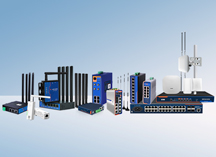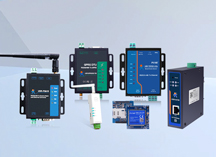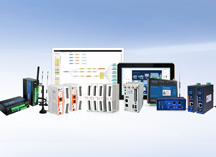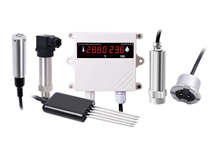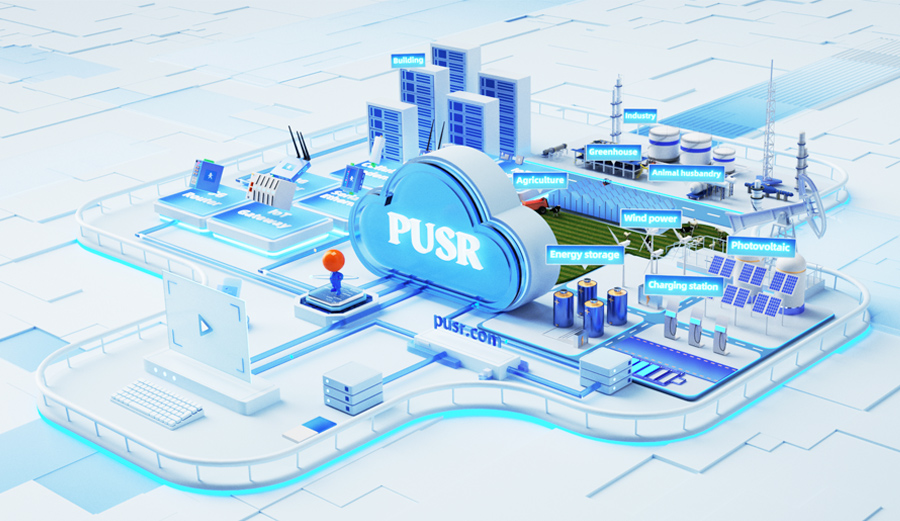What is the difference between an industrial router and an ordinary router
An industrial router is a wireless communication router for the Internet of Things, which provides users with the function of wireless long-distance data transmission. Widely used in various fields of M2M in the entire industrial chain of IoT technology, such as smart energy, smart transportation, smart home systems, financial services IoT technology, wireless communication, wireless routers, mobile POS terminals, supply chain management automation, industrial automation, and smart buildings , fire safety, public safety, ecological environmental protection, meteorology, digital medical treatment, remote sensing technology survey, agriculture and animal husbandry, forestry, water affairs, coal mining, petrochemical and other fields.
Difference in use
Ordinary routers mainly implement the home gateway function for users to access the WAN, and enterprise-level routers mainly implement high-performance Layer 3 network packet forwarding and learning of dynamic routing protocols. Generally speaking, ordinary routers basically only have the gateway function for accessing the Internet, industrial routers can not only act as gateways for accessing the Internet, but also have other more powerful functions.
Performance difference
Ordinary routers have low density, low signal strength, small coverage, limited forwarding performance and limited capacity. If they are used in public places like enterprises, there will be serious use concerns. Industrial routers have higher hardware parameters such as processor, cache, and memory, more NAT forwarding, and more users who can simultaneously access the Internet. According to the Uxin Unlimited test, general ordinary routers can connect 10-15 IP users, while industrial routers can connect 50-150 IP users.
Routing Protocol Differences
Ordinary routers generally support static routing protocols, which are pre-set by the network administrator according to the network configuration during system installation. After the network structure changes, the network administrators manually modify the routing table; enterprise-level routers support dynamic routing protocols. The operation of the network changes and the router automatically calculates the best path for data transmission according to the functions provided by the routing protocol, and obtains a dynamic routing table.
At the same time, enterprise-level routers generally have multiple security services and richer routing protocols, such as SNMP, static routers, policy routers, unified management protocols, etc. Through these protocols, industrial routers can ensure network security.
Security difference
Ordinary routers generally do not support functions such as internal/external attack defense, anti-virus Trojans and hackers because they support fewer protocols, and there is no guarantee of security; enterprise-level routers have more routing protocols, such as SNMP, policies, and unified management protocols. It can ensure the safe operation of the network and ensure that user information is not stolen.
Runtime difference
The high stability requirements of industrial routers are difficult to achieve for home routers. They need to work 24 hours a day throughout the year. When the network fails, you can switch the backup link or restart the device to make the network self-recovery. However, when using a router in an industrial enterprise environment, the router even needs to run for 24 hours due to work needs, which is not conducive to the stability of the device. Sex makes higher demands.
Differences in working environment
The requirements of the industrial environment for industrial routers are actually requirements for electronic components. The working temperature range of general industrial routers is usually between -40°C and 75°C, while the working range of general home routers is -10°C to 60°C, which mainly meets the needs of room temperature environment, so it cannot be applied to industrial control in harsh environments. Even the general outdoor public area is not enough in winter.
Industrial-grade wireless routers are used in the field of industrial control and require more powerful functions. It not only requires large bandwidth and fast response, but also requires basic functions such as port mapping, VPN, watchdog, stronger firewall, and electrostatic induction protection, while ordinary home routers only need to ensure the networking function. It can be seen that if enterprises choose home routers because of budget savings, it will lead to many situations, such as Trojan horse virus, network hacker intrusion, network ups and downs, it is very easy to find the phenomenon of no signal, and the router is often too hot , can not be used for a long time and so on. Therefore, apart from the difference in price, there is still a big gap between ordinary home routers and industrial-grade wireless routers.

